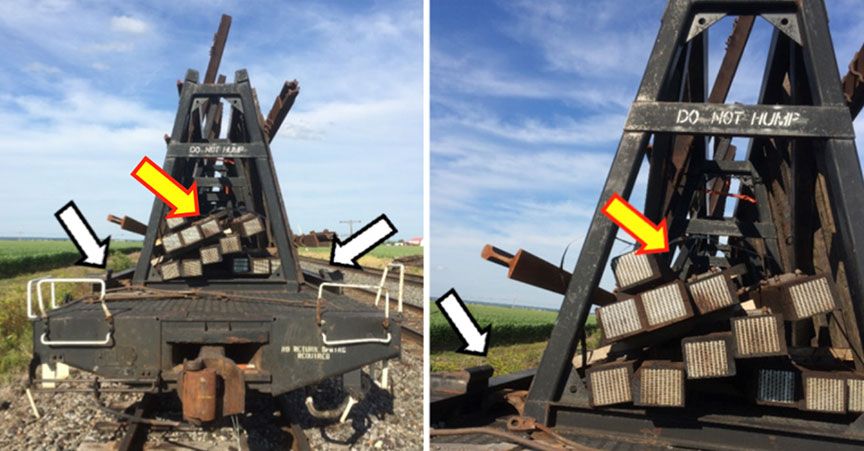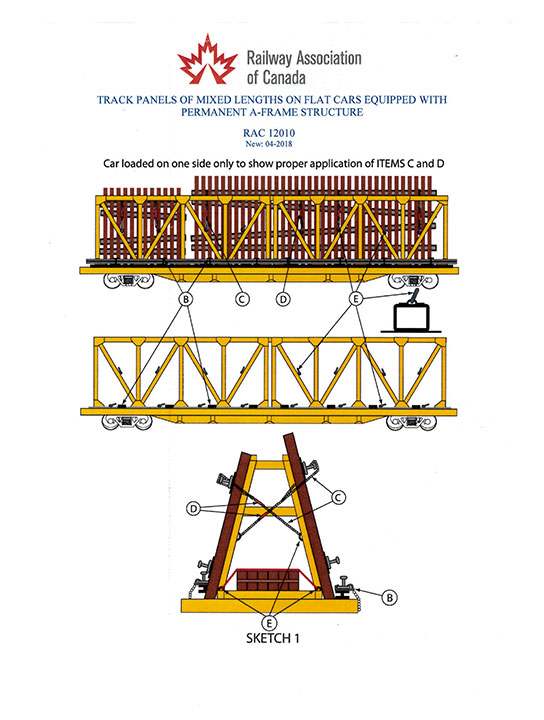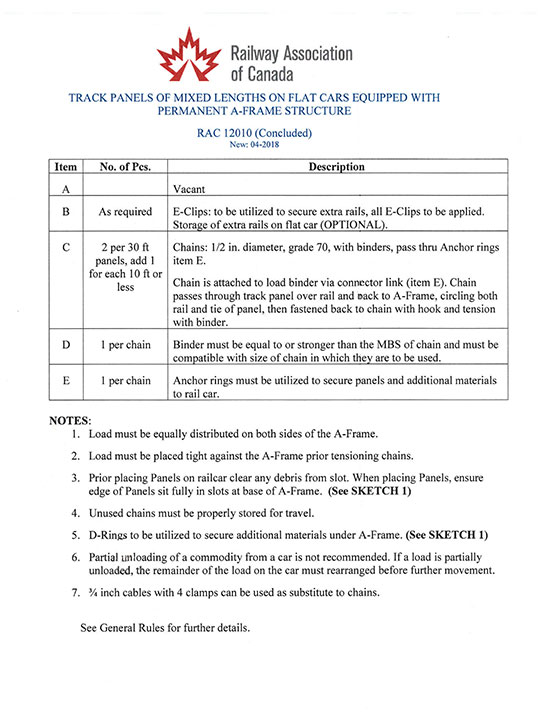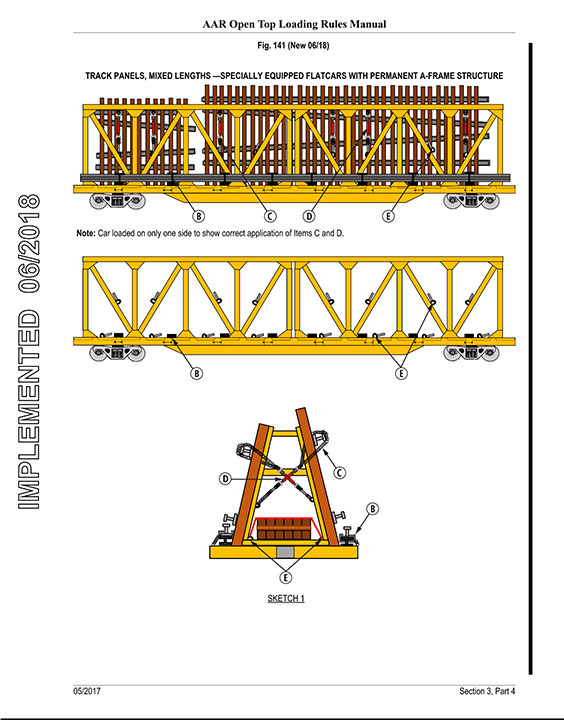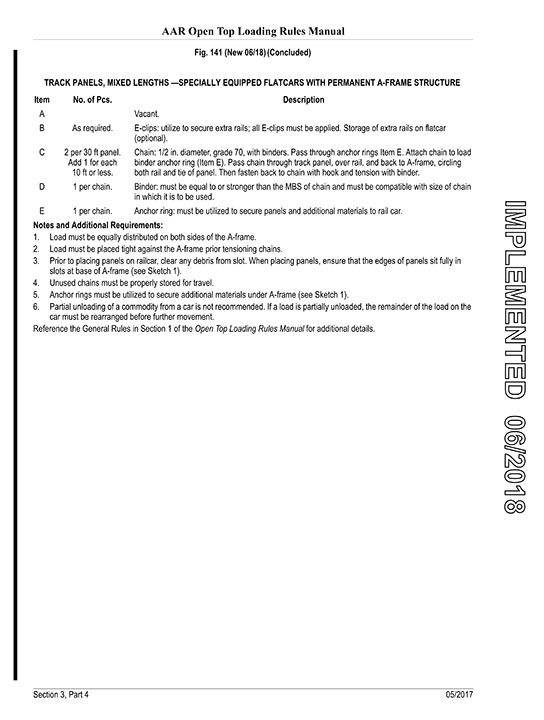Securement of loads on flat cars equipped with an A-frame structure
Place du Centre
200 Promenade du Portage, 4th Floor
Gatineau QC K1A 1K8
09 October 2018
Safety advisory letter 617-07/18
Related occurrence: R18D0069
Letter addressed to Transport Canada
Subject: Rail Safety Advisory Letter – 617-07/18: Securement of loads on flat cars equipped with an A-frame structure
On 16 July 2018, at approximately 1845 Eastern Daylight Time, Canadian Pacific Railway (CP) conventional freight train 142-14 experienced a train-initiated emergency brake application in the vicinity of Mile 36.6 on the south track of CP's Winchester Subdivision, near Saint-Polycarpe, Quebec. The train, proceeding eastward at 37.5 mph, consisted of 2 locomotives, 76 loaded cars, and 19 empty cars. It was 9405 feet in length and weighed about 11 260 tons. Upon inspection, it was determined that 23 cars had derailed. There were no injuries and no release of dangerous goods (TSB Occurrence No. R18D0069).
During site examination, it was noted that a 20-foot-long stock rail, which had been bundled with some crossties and secured using AAR33 steel banding on car CP 421885,Footnote 1 had come loose and fallen from the trailing end of the car just prior to the occurrence (Figure 1).
In April 2018, the Railway Association of Canada (RAC) published its open top loading rules for A-frame-type flat cars (Annex A).Footnote 2 Similarly, in June 2018, the Association of American Railroads (AAR) published its open top loading rules (Annex B).Footnote 3 In both the RAC rules and the AAR rules, the following guidance (in part) is provided for securing track materials onto a flat car with an A-frame structure:
- crossties must be secured using chains or ¾-inch cable, and
- stock rails must be secured onto mounts on either side of the car using elastic fasteners.
In this occurrence, the ties and stock rail had been loaded onto car CP 421885 at CP's Weston Shops in Winnipeg, Manitoba. Between January 2018 and July 2018, 28 other similar cars (i.e., flat cars equipped with an A-frame structure) were loaded with track materials and shipped from CP's Weston Shops. In May 2018, CP identified a previous shifted top load event involving track materials that had been secured onto car CP 421895 at Alyth Yard in Calgary, Alberta.
Given the potential consequences when loads shift during train operations, Transport Canada may wish to review the adequacy of CP's open top loading practices, particularly when transporting track materials on flat cars equipped with an A-frame structure.
Original signed by
Kirby Jang
Director
Investigation Operations, Rail/Pipeline
Cc.
- Canadian Pacific Railway
- Railway Association of Canada
- Transportation Technology Center, Inc.
Annex A – RAC 12010 – Track Panels of Mixed Lengths on Flat Cars Equipped with Permanent A-Frame Structure
Annex B – AAR Open Top Loading Rules
Background information
Occurrence No.
R18D0069
Contacts
Don Mustard, Regional Senior Investigator, Richmond Hill Regional Office, Ontario
Manuel Kotchounian, Engineering Specialist/Senior Investigator, Pipeline, Head Office, Gatineau, Quebec
